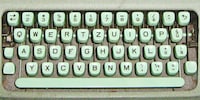

Swiss High German for beginners (German): Why we write so funny
As a matter of principle, we Swiss speak dialect in such a way that you don't understand anything. We call what we write High German, but it still seems Spanish to you in the far north.
The classic misunderstanding between Germans and Swiss goes like this: The Swiss asks the German if he understands Swiss German. The latter thinks so: Yes, he understands it. So the Swiss starts to speak in his own dialect. Whereupon the German no longer understands anything. Because what he thought was Swiss German was the Swiss's High German.
The misunderstanding has several causes. One of them is that many Swiss people have such a bad accent that it always sounds like dialect anyway (see video above). Another reason is that Switzerland has its own High German, which differs from the standard German language. This means that even in the extremely unlikely event that a Swiss person masters the pronunciation of High German perfectly, it still sounds foreign to Germans. You'll probably notice this when you read our texts. Because many of them come from Switzerland. Including this one, even though it says "Hamburg" at the top of my name right now.
Why does Swiss High German exist at all?
There is a Duden reference work that translates Swiss High German into German High German. That sounds absurd, because the purpose of a standardised language is to create uniformity. However, as a country in its own right, Switzerland can set its own rules. And it does, because the purpose of the standardised language in Switzerland is somewhat different to that in Germany. It also helps compatriots with a French or Italian mother tongue to understand us better.
With this in mind, it is not surprising that Swiss High German uses many words of French origin: Velo instead of bicycle, Trottoir instead of pavement, Dessert instead of dessert, Billett instead of ticket. However, as gnarled, stubborn mountain people, we also reserve the right to use other words simply out of spite: morning meal instead of breakfast, park instead of parking, sweep instead of turn. And by the way: it's "Zürcher", not "Züricher", for crying out loud!
50 francs fine
Every time I write about a "fine", I am told in reader comments that it means "fine", because otherwise it would be a bus. But Switzerland doesn't recognise the letter ß. Doesn't even want to know it. Accordingly, there is no key for it, I have to create this special character on the numeric keypad with the code Alt+0223.
Our errors are not errors, but unique selling points.
I don't know the historical reason for this, but it could have something to do with the fact that we want to be associated with the French- and Italian-speaking Swiss. There is no ß there either. The typographical "inverted commas" I use are also correct in France, but wrong in Germany. No wonder, they have a French name: Guillemets.
The Swiss keyboard layout
The keyboard layout in German-speaking Switzerland differs not only in that it has no ß. The umlauts become à, é and è instead of Ä, Ö and Ü when the shift key is pressed. To capitalise umlauts, we have to use the Caps Lock key or write ¨ and A/E/U one after the other. Although this is impractical, we are a little closer to the Swiss in the French and Italian language regions. They have exactly the same keyboard layout as us, except that à, é and è appear without the shift key, whereas ä, ö and ü appear with the shift key.

At galaxus.de we of course mainly sell keyboards with a German-German layout. However, there are some that are labelled in American and some with a Swiss-German layout. You can use our filter functions on the product overview to select the keyboards by layout.

Different product designations
Helvetisms, i.e. High German expressions that only the Swiss use, are mainly found in administration and politics and, of course, when eating. "Parliament is in favour of the bill" probably sounds like a tantrum to a German. But it means nothing other than that parliament is now dealing with the matter.
Luckily, products from the IT and electronics sector are almost always called the same thing in Switzerland as they are in Germany. The only special Swiss term I can think of is "Natel", a completely outdated synonym for mobile phone, which nevertheless persists. Probably because nobody knows that it's the abbreviation for "national car phone". Well, in the 1980s, mobile phones were just so big that they could only be transported in cars.
Is there an equivalent for "Natel" in Germany? I'm guessing BuFeKoKfzAp (Bundesweit nutzbarer Fernsprechkompaktkraftfahrzeugapparat), which didn't catch on because it was impossible to call. Although, in the land of saturation supplements and passenger car energy consumption labelling regulations, you can never be sure whether a word boil will catch on.
Seriously, we can store synonyms for the product search in the Galaxus shop. That's why the search will find the iPhone in any case, regardless of whether you enter mobile phone, mobile or Natel. If we need to introduce a synonym because the word is only used in Germany, please let us know!
An interest in IT and writing landed me in tech journalism early on (2000). I'm interested in how to use technology without being used. I prefer to spend my free time making music, where I compensate for moderate talent with excessive enthusiasm.
Interesting facts about products, behind-the-scenes looks at manufacturers and deep-dives on interesting people.
Show allThese articles might also interest you

Background information
Dvorak or Colemak after all: examining how weird keyboard layouts can really get
by Kevin Hofer

Background information
Oscar and his perfect home office setup: «It’s important for us to see and hear each other»
by Coya Vallejo Hägi

Opinion
I want to please everyone: Confessions of a Keyboard
by Thomas Meyer